TRAINING GRANTS
2023-2024 TRAINING GRANT RECIPIENTS
TRAINEES
● CURRICULAR ENHANCEMENT IN PUBLIC HEALTH ENTOMOLOGY
"Training STEM students in mosquito surveillance and identification"

Abdoulaye Aziz Zerbo, BS
Abdoulaye Aziz Zerbo is a graduate student currently pursuing a Master of Public Health at California State University, San Bernardino (CSUSB). Having obtained his bachelor's degree in 2021, he aspired to deepen his expertise through graduate studies to better serve the community. Abdoulaye developed a strong interest in vectors, their biology, and their behavior. Collaborating with Dr. Nikbakhtzadeh, a faculty of Environmental Health Science at CSUSB, he has expanded his understanding of vectors and eventually embarked on research investigating the impact of Glyphosate on the developmental stages of Culex quinquefasciatus for his master’s thesis. After graduating, Abdoulaye tends to bring his expertise to address the emerging vector-borne diseases.

Mayra Espinoza
Mayra Espinoza is an undergraduate student at CSUSB, pursuing a Bachelor of Science in Environmental Health Science (EHS). Her research is focused primarily on the vectors of diseases and the impact of agrochemicals on their survival, development, and fitness. She joined Dr. Nikbakhtzadeh’s Lab in Fall 2022 and since then has been working there voluntarily as an undergraduate research assistant. Her project investigates how Glyphosate may alter the larval development, oviposition and natural fitness in the southern house mosquito, Culex quinquefasciatus. She recently interned at West Valley Mosquito and Vector Control District to research how to optimize the synchronization of Aedes aegypti larval development, to help harvest male mosquitoes for SIT purposes. She hopes the outcome of her research has a positive impact for the community, public health, and that it can be applied to the future studies of disease transmission among human populations. In the near future, she looks forward to continuing her education by attending graduate school to earn a master's degree in environmental health science.

Mahmood Nikbakhtzadeh, PhD, MS
Assistant Professor, California State University, San Bernardino
Adjunct Assistant Professor, San Diego State University
Dr. Mahmood Nikbakhtzadeh is a passionate researcher, studying mosquito behavior and the effects of disturbed habitats on mosquito species. He holds two PhDs; the first in medical entomology from Tehran University of Medical Sciences, Iran, and the second in chemical ecology from the University of Bayreuth, Germany. Following the completion of his second PhD, Dr. Nikbakhtzadeh embarked on a postdoctoral research position alongside Dr. Woodbridge Foster at the Ohio State University. Throughout his career journey, he has worked as a scientist in Dr. Walter Leal’s Lab at the University of California, Davis and has also served as a vector biologist with the state of Vermont. Additionally, he holds an adjunct assistant professorship at the School of Public Health, San Diego State University. Since 2020, Dr. Nikbakhtzadeh has been serving as an assistant professor of Environmental Health Science at California State University, San Bernardino. His research lab is dedicated to investigating the impact of agricultural pollutants on the behavior and fitness of vectors of West Nile virus and St. Louis encephalitis in southern California.
"Developing student interest in public health entomology"
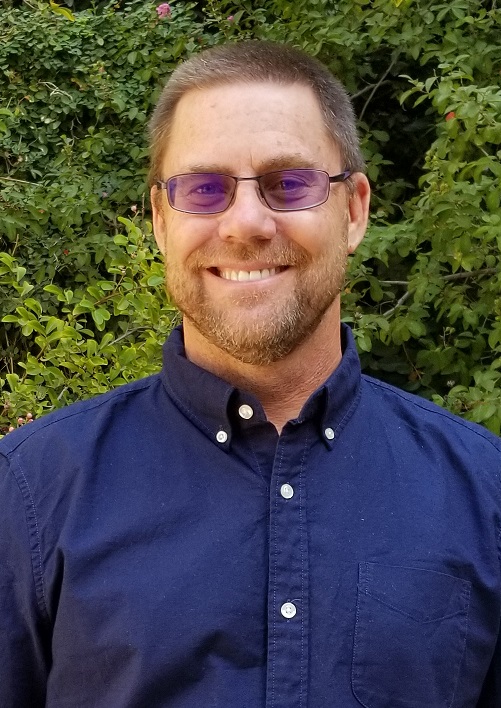
Alec Gerry, PhD
Professor and Cooperative Extension Specialist, University of California, Riverside
Dr. Alec Gerry is a professor and cooperative extension specialist in the Department of Entomology at the University of California, Riverside. Dr. Gerry studies the biology, ecology, and integrated management of pest arthropods and disease vectors of animals. In particular, research in the Gerry Lab aims to improve pest surveillance and trapping strategies, characterize pest dispersal, develop novel methods for pest control, and explore the interactions of biting insects and their animal hosts.
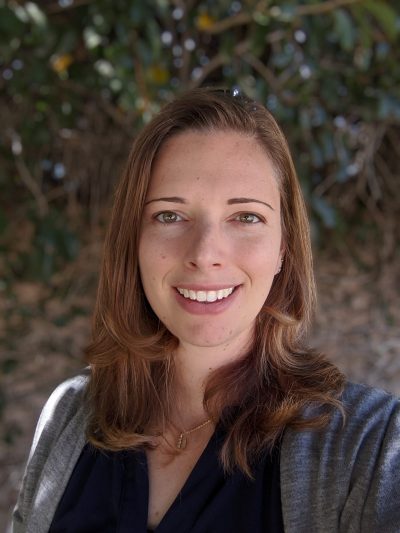
Amy Murillo, PhD
Assistant Professor, University of California, Riverside
Dr. Amy Murillo is an assistant professor in the Department of Entomology at the University of California, Riverside. Research in the Murillo Lab aims to better understand how arthropod parasites and vectors affect poultry and livestock behavior, welfare, and production. They are interested in understanding the basic biology and ecology of ectoparasites, as well as developing practical control methods for mitigating economic damage and improving animal well-being.
● MENTORED RESEARCH FOR STUDENTS AND POSTDOCTORAL SCHOLARS
"Defining seasonal regional risk of tick-borne diseases"
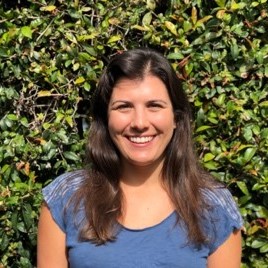
Samantha Sambado, MS
Samantha Sambado is currently pursuing an ecology, evolution, and marine biology PhD at the University of California, Santa Barbara with Dr. Cherie Briggs and Dr. Andy MacDonald to better understand how vector-borne diseases spread using empirical and theoretical frameworks. She completed her Master of Arts in probability and applied statistics with a concentration on data science in 2023 and completed her Master of Science in microbiology in 2019. She hopes to stay connected with other PacVec researchers to continue collaboration on vector-borne disease projects and exchange ideas of how to make basic science applicable to public health.
- Macro-parasites and micro-parasites co-exist in rodent communities but are associated with different community-level parameters. Saloman J, Sambado SB, Crews A, Sidhu S, Seredian E, Almarinez A, Swei A et al. International Journal for Parasitology: Parasites and Wildlife. 2023. https://doi.org/10.1016/j.ijppaw.2023.08.006
- Linking Lyme disease ecology and epidemiology: reservoir host identity, not richness, determines tick infection and human disease in California. MacDonald AJ, McComb S, Sambado S. Environ. Res. Lett. 2022. https://doi.org/10.1088/1748-9326/ac9ece
- Detection and isolation of Rickettsia tillamookensis (Rickettsiales: Rickettsiaceae) from Ixodes pacificus (Acari: Ixodidae) from multiple regions of California. Paddock CD, Swei A, Trent E, Zhong J, Sambado S, Foley J et al. Journal of Medical Entomology. 2022. https://doi.org/10.1093/jme/tjac038
- Mixed transmission modes promote persistence of an emerging tick-borne pathogen. Sambado S, Saloman J, Crews A, Swei A. Disease Ecology. 2020 Jun 21. https://doi.org/10.1002/ecs2.3171
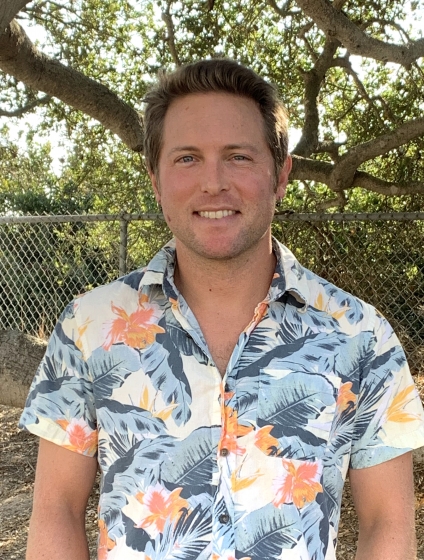
Andy MacDonald, PhD, MS
Assistant Professor, University of California, Santa Barbara
Dr. Andy MacDonald is a broadly trained ecologist who leverages field, lab and data driven approaches to understand how disease risk and transmission responds to global change. His research has focused on the effects of land use change and climate change on a variety of infectious diseases including Lyme disease and West Nile virus in North America, and malaria and dengue in the tropics. His research has also focused on the feedback between human health and conservation, identifying how environmental change can influence health, but also how health can influence natural resource use and conservation. Dr. MacDonald has formal training in both the social and natural sciences, and prior to joining the Bren School he completed a National Science Foundation Postdoctoral Research Fellowship in Biology at Stanford University and was an assistant researcher in the University of California, Santa Barbara’s Earth Research Institute.
"Assessing multiple methods of educational interventions of tick-borne diseases in California ‘hotspots’"
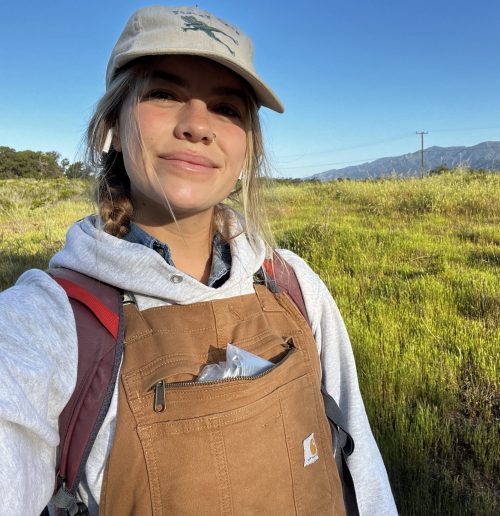
Kacie Ring, MS
Kacie Ring is a PhD candidate in ecology, evolution, and marine sciences at the University of California, Santa Barbara. She completed her master’s degree in microbiology at San Francisco State University in August 2020. Kacie plans to continue her research on tick-borne pathogens, studying their responses to changing landscapes and climates during her PhD. She hopes to utilize funding from PacVec to increase knowledge and awareness of tick-borne disease hazards to humans through an educational campaign that examines the engagement of the public on different educational materials. Moving forward, Kacie hopes to either stay in academia or pursue a career in public health continually examining the complex relationship between humans and ticks.
- Host blood meal identity modifies vector gene expression and competency. Ring K, Couper LI, Sapiro AL, Yarza F, Chou S, Swei A et al. Molecular Ecology. 2022. https://doi.org/10.1111/mec.16413
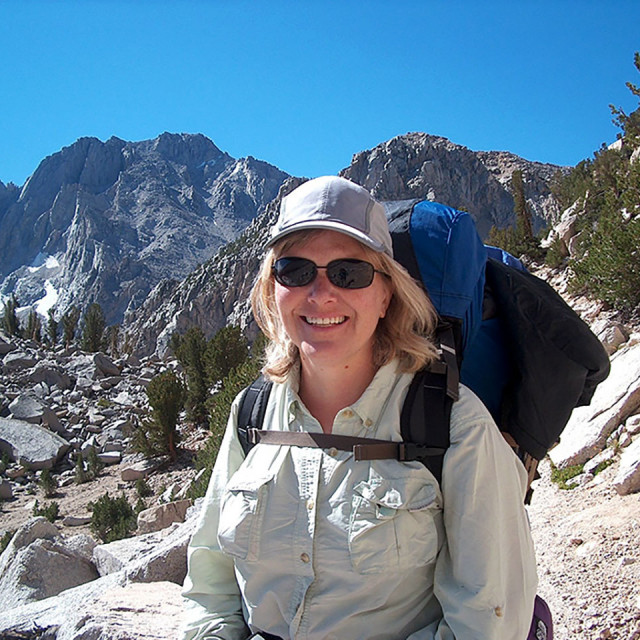
Cherie Briggs, PhD
Professor, University of California, Santa Barbara
Dr. Cherie Briggs’ research combines modeling and experiments to understand the factors affecting the dynamics of animal populations. Her lab is working on a number of projects involving disease-host or parasitoid-host interactions, including frog-killing chytrid fungus and the distribution of Lyme disease in California.
"Molecular mechanisms of larvacide resistance and determination of genetic introgression in wild Culex pipiens mosquitoes within Salt Lake City, Utah"
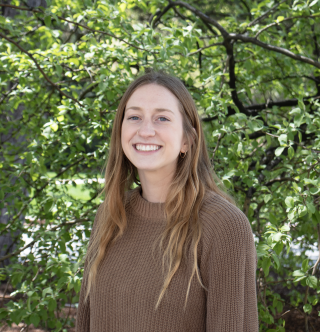
Emily Calhoun, BS
Emily Calhoun is a PhD candidate interested in disease ecology, vector-host interactions, population genetics, evolutionary biology, microbiology, and One Health. Emily completed her Bachelor of Science in neuroscience at Westminster College. After finishing her PhD, she hopes to start a career and continue doing research by working with a public health department or vector control district.
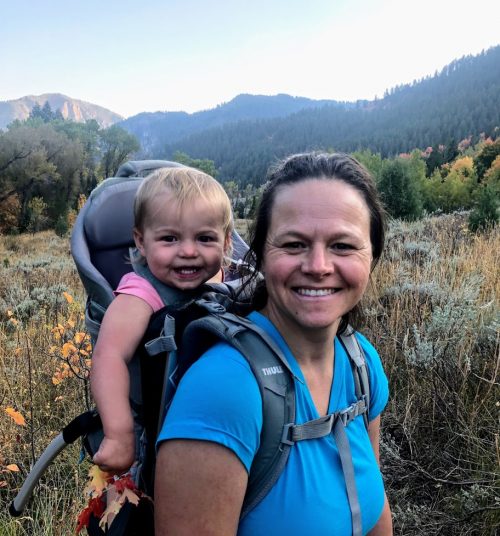
Norah Saarman, PhD
Assistant Professor, Utah State University
Dr. Norah Saarman is an assistant professor at Utah State University. Her research combines empirical population genetics data and spatial modeling to investigate the genetic and phenotypic diversity that allows species to be successful in their environment. The Saarman Lab aims to improve the ability to predict population responses to climate change in insect vectors of human disease and in species of special ecological or conservation value.
"Identifying potential action thresholds and areas of high-risk West Nile virus exposure in Pinal County, AZ"

Thomas Moore, MS
Thomas Moore is a PhD candidate in epidemiology at the Mel & Enid Zuckerman College of Public Health (MEZCOPH). He earned his Bachelor of Science in biology with an emphasis in microbiology at Brigham Young University-Idaho and his Master of Science in global health at Duke University, where his thesis work focused on understanding the ecology of tick-borne diseases among nomadic populations in Mongolia. Prior to coming to the University of Arizona, Thomas completed the CDC-APHL Infectious Disease Laboratory Fellowship where he served as an epidemiologist and virologist at the Tennessee Department of Health’s Vector-borne Diseases Program. Thomas has also earned a graduate certificate in Professional Geographic Information Systems Technology from the University of Arizona’s School of Geography, Development and Environment. Thomas’ research interests include exploring the ecology of zoonotic and vector-borne disease transmission and optimizing current surveillance procedures for such diseases. His current dissertation work is examining the utility of mosquito surveillance to identify areas of high-risk West Nile virus exposure in rural and urban environments of the United States.

Heidi Brown, PhD, MPH
Associate Professor, University of Arizona
Dr. Heidi Brown is an associate professor at the University of Arizona. Dr. Brown’s PEST Lab, works to understand drivers behind the spatial and temporal distribution of infectious disease with a specific focus on vector-borne and zoonotic diseases. Models of vector, host and pathogen distributions and how they are influenced by environmental factors is used to map human disease risk. Current research diseases and tools include: West Nile virus, dengue, valley fever (coccidioidomycosis), spatial epidemiology, and climate change and health.
"Determining the direct and residual efficacy of insecticidal fogging"
Donald Ward, MSPH
Donald Ward is a current biology PhD candidate at Arizona State University (ASU) interested in the dynamics of insecticide resistance evolution and ecology in field mosquito populations. He earned his Bachelor of Science in zoology from Auburn University in 2015 and his Master of Science in Public Health (Tropical Medicine) degree from the Tulane School of Public Health in 2017. He returned to work on his PhD at ASU after working for four years producing sterile Anopheles stephensi mosquitoes for Sanaria, Inc., a malaria vaccine company in Rockville, Maryland. After he obtains his PhD, Don plans to pursue a postdoc or government research position as a vector-borne disease researcher.
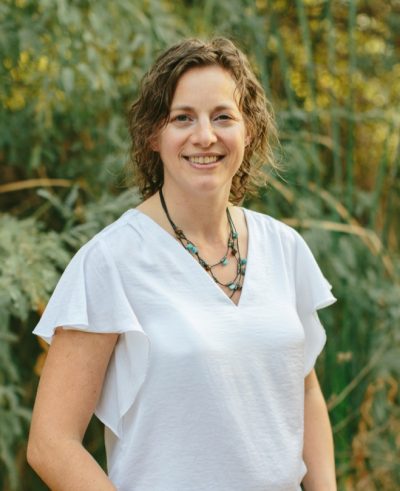
Silvie Huijben, PhD, MSc
Assistant Professor, Center for Evolution and Medicine, Arizona State University
Assistant Professor, School of Life Sciences, Arizona State University
Dr. Silvie Huijben is an assistant professor at the Center for Evolution and Medicine and School of Life Sciences at Arizona State University. Her overall research interest is to investigate optimal strategies for containment of antimalarial resistance in malaria parasites and insecticide resistance in disease-transmitting mosquitoes while optimizing disease control. In order to do so, the Huijben Lab studies the evolutionary pressures acting on resistant organisms: both the strength of selection at different exposure levels of the drug/insecticide, the cost of resistance, and the interaction of both of these with the environment. They approach this by a combination of working with field-derived samples, empirical data derived from evolutionary experiments in the lab and, in collaboration, with mathematical modeling.
"Quantifying time-location patterns of human-mosquito interactions to inform operational control activities and public education programs"

Adele Malone, BS
Adele Malone is currently a master’s student in Dr. Krijn Paaijman’s Lab at Arizona State University and a full-time laboratory technologist for the Maricopa county Environmental Services Department Vector Control Division. Before converting to researching disease vectors, she performed research on native bees in the Greenlee lab at North Dakota State University (NDSU), graduating from NDSU in 2021 with Bachelor of Science in biology and microbiology. Much of her current work is centered around human-vector interactions and screening for disease presence in the mosquito population across Maricopa County to help protect citizens from increases in disease and vector presence. In the future, Adele hopes to work with public health efforts to address vector-borne, zoonotic diseases and health inequality.
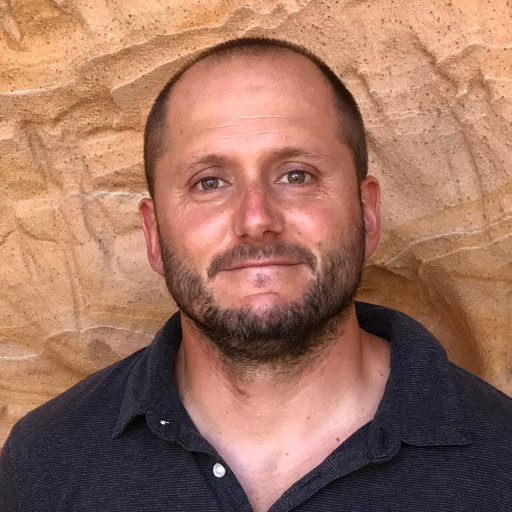
Krijn Paaijmans, PhD, MSc
Assistant Professor, School of Life Sciences, Arizona State University
Assistant Professor, Center for Evolution and Medicine, Arizona State University
Dr. Krijn Paaijmans is a disease ecologist with a strong interest in how the biology and ecology of parasites, viruses and insect vectors shape the distribution and intensity of infectious diseases (such as malaria and dengue). He studies the biology and behavior of disease vectors (e.g. mosquito development, blood-feeding behavior and vector competence) to design new tools and/or strategies for mosquito surveillance and control. To illustrate, his team – together with various partners around the world – is currently developing and piloting a novel vector control approach that uses high power pulsed electric fields to prevent mosquitoes from biting their human host. His translational research aims to better inform disease control and prevention programs with the ultimate aim to reduce disease morbidity and mortality.
"Geospatial surveillance and geo-targeted interventions for halting the spread of Aedes aegypti mosquitoes in San Bernardino County, California"
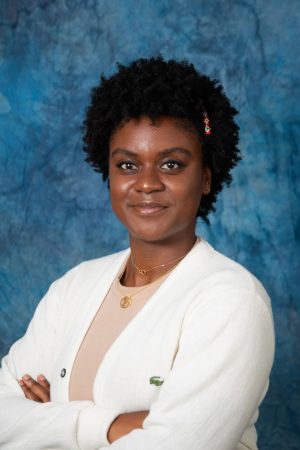
Gaëlle Tatiana Sehi, MPH
Gaëlle Tatiana Sehi is an Ivorian PhD student in the public health department at the University of California, Irvine. She has a Bachelor of Science in biochemistry and biology, and a Master of Public Health in epidemiology. Gaëlle is passionate about raising awareness and educating populations about infectious diseases. Her research interests lie in understanding the ecology of vector-borne diseases, remote sensing, and healthcare accessibility, with a focus on spatial epidemiology, infectious diseases, and maternal & child health in West Africa.

Daniel M. Parker, PhD
Associate Professor, University of California, Irvine
Daniel M. Parker is an associate professor in public health at the University of California in Irvine. His lab works on the spatial epidemiology and medical geography of infectious diseases. Research in his lab focuses primarily on geographic and environmental correlates of infectious diseases, and the majority of Dr. Parker’s work has focused on vector-borne diseases in Southeast Asia.
TRAINING GRANT PROGRAM
PacVec’s training grant program intends to provide career development opportunities for individuals interested in public-health-relevant research on vector-borne diseases and to enable additional research and training opportunities that will contribute to the development of the public health workforce.
The Pacific Southwest Regional Center of Excellence in Vector-Borne Diseases is supported through Cooperative Agreement Number 1U01CK000649 between the Centers for Disease Control and Prevention (CDC) and the University of California, Davis.
© 2025 – All rights reserved